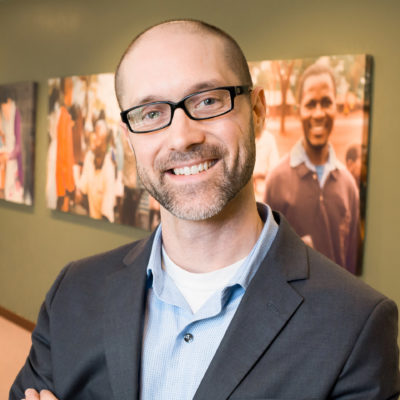
4 Ways to Successfully End Your Winter Retreat
Coming down the mountain on a spiritual high, now what?
Throughout my entire ministry career, retreats have been a vital part of making disciples. Some I have served as the speaker, some I have organized, and others I have enjoyed as an observer. But, no matter the role, I came down the mountain with conflicting emotions. On the one hand, I am thrilled to see the Spirit of God break through into the lives' of students. I become overjoyed seeing them commit to Christ or rededicate their lives. I have witnessed students encounter Christ in a way that destroys them (in a good way of course), and remakes them more into the image of Christ. There have been times that I have stood back in sheer amazement at what God is up to in the midst of my students. Most retreats, I am brought to tears.
On the other hand, I leave with a sense of dread and anxiety. We all know how the end of a retreat goes. You come down from the mountain…and then Monday happens. Complacency happens. Life happens. You suddenly realize how easy it is to connect with God, feel the presence of the Holy Spirit, or meet Christ for the first time when everyone is laser-focused on it. But being focused is not hard when during three days students experience five sessions of worship and teaching. All of which make retreats hard work. In fact, they are exhausting—physically, mentally, and spiritually. But the real work begins when the bus arrives back at church; the students grab their stuff and head home.
I have learned a lot over the years about what it takes to make a retreat successful. Success is not about a great band, the best speaker, how many hands were in the air during worship, how many students cried around the campfire, or even the number of students who committed to Christ. Although all great stuff, what's more, is the continued transformation of our students long after the retreat is over. So here are a few practical things you can do to help ensure that your retreat is a success—after you come down from the mountain.
All about the follow-up
I am sure that you paid attention to those students who made new commitments or recommitted in some fashion. Follow up with them. Now I don’t just mean, pulling them aside in two weeks and asking how it’s going. That might be a start. But you’ll need to take it one step further. Ask them how you can help and how you can hold them accountable. It may sound a bit weird but work with them to set some goals. Doing so will give you specific things to discuss down the road, rather than just, "how's it going?" Remember your students need to feel comfortable coming to you with both the victories and the defeats. You can't help them if they are not honest. If your group is too big to keep track of all your students, then use your small group leaders to help with the load. Just make sure you meet with your leadership and receive updates.
Accountability by texting
When students walk back into the routine of their lives, they get bombarded with the opportunity to slide back into their old ways, pushing any sanctification progress aside. But what if they had a way to get to you, small group leader, or other students in their small group. Years ago, I had some students set up a texting app (choose one, there are dozens of them—we used GroupMe). The primary purpose at the time was communication among students. They added me for fun and I rarely engaged, but I had the privilege of witnessing what the group chat became. They began to pray for one another, support one another, and hold one another accountable. This small group of students made spiritual leaps and bounds. This kind of thing certainly didn't work for every student and didn't work every year. But what it does is brings their faith in Christ into their everyday world. It allows you to guide when necessary, pray for your students, encourage, or rebuke. It brings the spiritually of the retreat and challenges of real life closer together.
What about those who didn’t experience a “spiritual high”?
It is so easy to get focused on the amazing transformations witnessed on a retreat that we ignore the rest. You certainly have students who didn’t experience much at all. I am sure you also have some students who had quite a significant experience but didn't show it or share it. I always made those students a high priority. I wanted to know why. If there were roadblocks, I wanted to remove them. If they had questions, I wanted to answer them. If they were just quiet about it, I wanted to help them shout it from the rooftop. I believe that the hardest part of any retreat is rolling up our sleeves and working to connect with the students who are quiet, have questions, skeptical, angry, confused, complacent, or who just don’t care. It is an opportunity to overwhelm them the love of Jesus.
What about you?
Retreats impact us too. So take the time to share with students how the message, or the worship, or how your students have changed or challenged you. What are your goals for growth? Allow for a level of transparency with your students. Give them a glimpse of your walk with Jesus. A window into your spiritual life will create a stronger sense of community between you and your students. Authenticity can have immense impact, but be wise in what you share. Focus on the retreat. What challenged you, what encouraged you, and how do you plan to carry it forward.
Each of these is about one thing—creating community. One key reason that retreats have such a powerful effect is that they foster a strong sense of community. During my days planning retreats for a Christian school, retreats were mandatory. We wanted all students there because of community. Students were forced to make friends, work together, worship together, and learn together.
Whether you use some of these ideas or create your own; the key to ensuring that your retreat is a success, after all, is said and done is that you make continuing that sense of community a priority.
Steve Kozak
Executive Director of AwanaYM
Steve currently serves as the Executive Director of AwanaYM. Previously, Steve spent over a decade teaching high school theology and apologetics from Detroit to LA. Steve holds a Masters degree in Theology from Moody Theological Seminary and a Masters in Christian Apologetics from Biola University. Steve is also an adjunct professor at Trinity International University. He speaks and writes on youth ministry, youth culture and apologetics. He resides in Chicago, IL with his wife and four children.FollowSteve Kozak on Twitter: stevenmkozak
Comments
Get the AwanaYM Update
Receive youth ministry resources in your inbox. Subscribe today!
